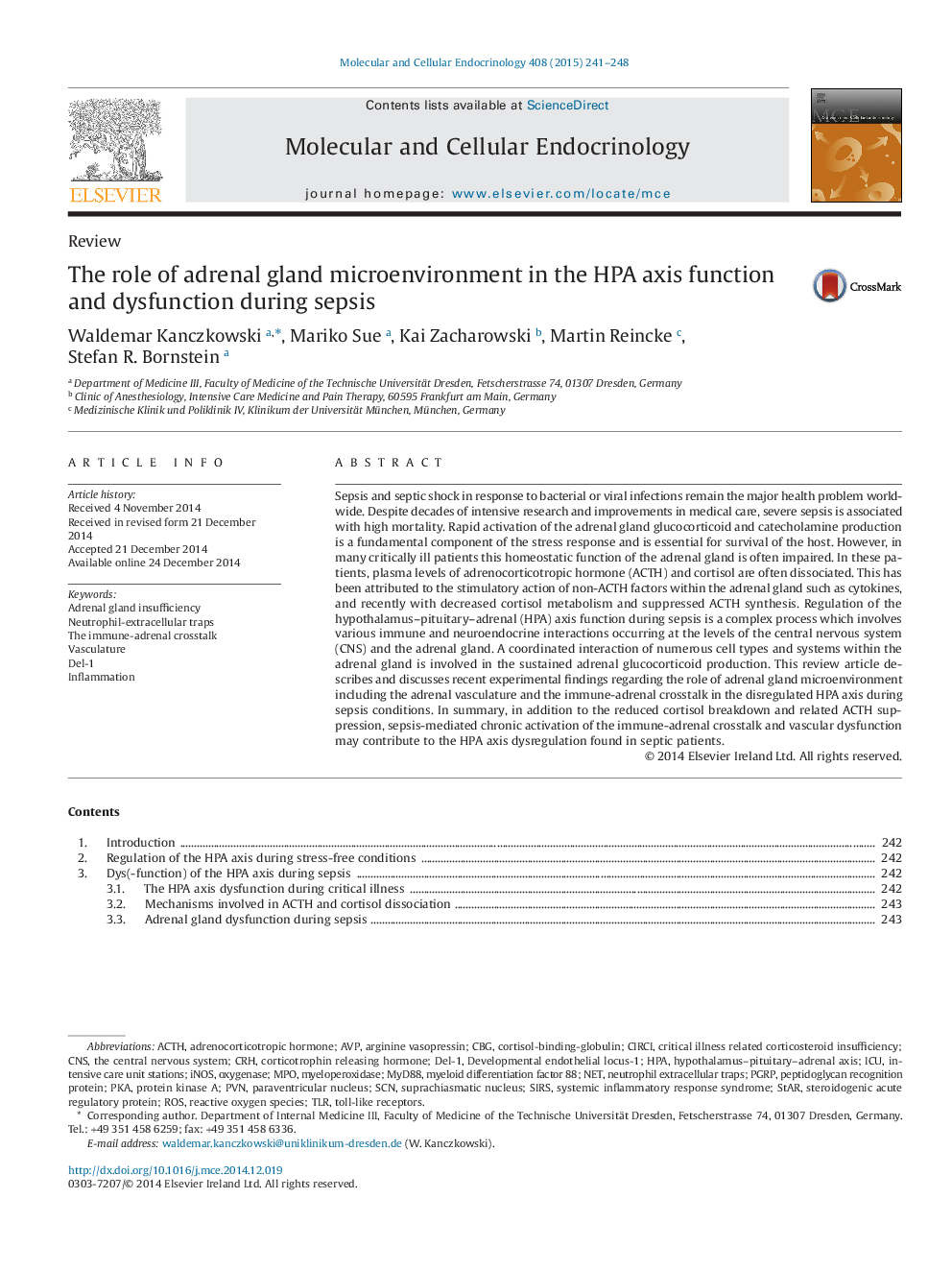| Article ID | Journal | Published Year | Pages | File Type |
|---|---|---|---|---|
| 2195838 | Molecular and Cellular Endocrinology | 2015 | 8 Pages |
•Homeostatic activation of the HPA axis is pivotal to survive sepsis and septic shock.•In many critically ill patients plasma ACTH and cortisol levels are often dissociated.•Dissociation of the HPA axis during sepsis is associated with chronic adrenal inflammation.•Chronic inflammation and increased adrenal cell death may contribute the HPA axis dysfunction.•Disruption of the adrenal gland vascular homeostasis may lead to dysregulation of the HPA axis.
Sepsis and septic shock in response to bacterial or viral infections remain the major health problem worldwide. Despite decades of intensive research and improvements in medical care, severe sepsis is associated with high mortality. Rapid activation of the adrenal gland glucocorticoid and catecholamine production is a fundamental component of the stress response and is essential for survival of the host. However, in many critically ill patients this homeostatic function of the adrenal gland is often impaired. In these patients, plasma levels of adrenocorticotropic hormone (ACTH) and cortisol are often dissociated. This has been attributed to the stimulatory action of non-ACTH factors within the adrenal gland such as cytokines, and recently with decreased cortisol metabolism and suppressed ACTH synthesis. Regulation of the hypothalamus–pituitary–adrenal (HPA) axis function during sepsis is a complex process which involves various immune and neuroendocrine interactions occurring at the levels of the central nervous system (CNS) and the adrenal gland. A coordinated interaction of numerous cell types and systems within the adrenal gland is involved in the sustained adrenal glucocorticoid production. This review article describes and discusses recent experimental findings regarding the role of adrenal gland microenvironment including the adrenal vasculature and the immune-adrenal crosstalk in the disregulated HPA axis during sepsis conditions. In summary, in addition to the reduced cortisol breakdown and related ACTH suppression, sepsis-mediated chronic activation of the immune-adrenal crosstalk and vascular dysfunction may contribute to the HPA axis dysregulation found in septic patients.
